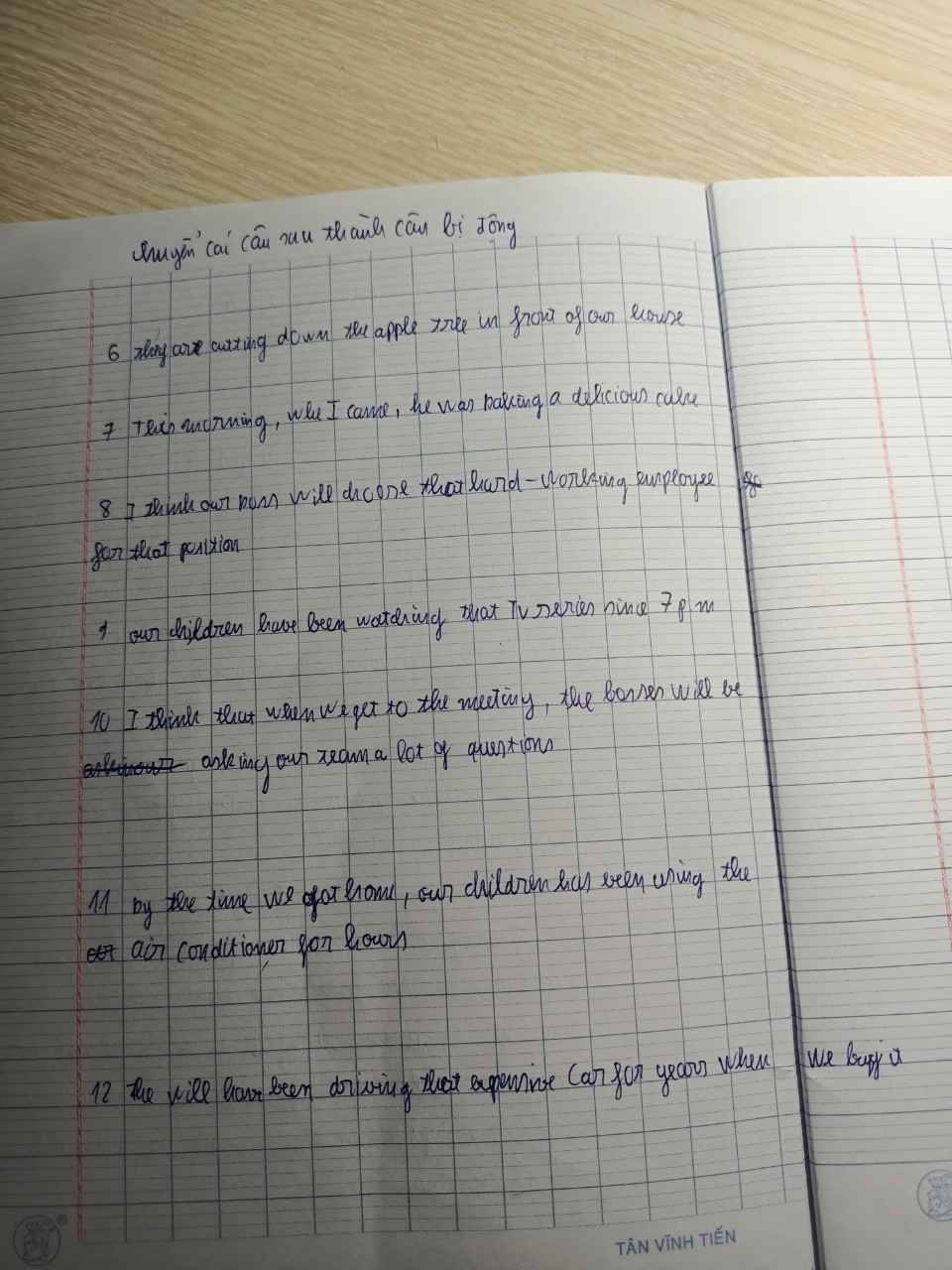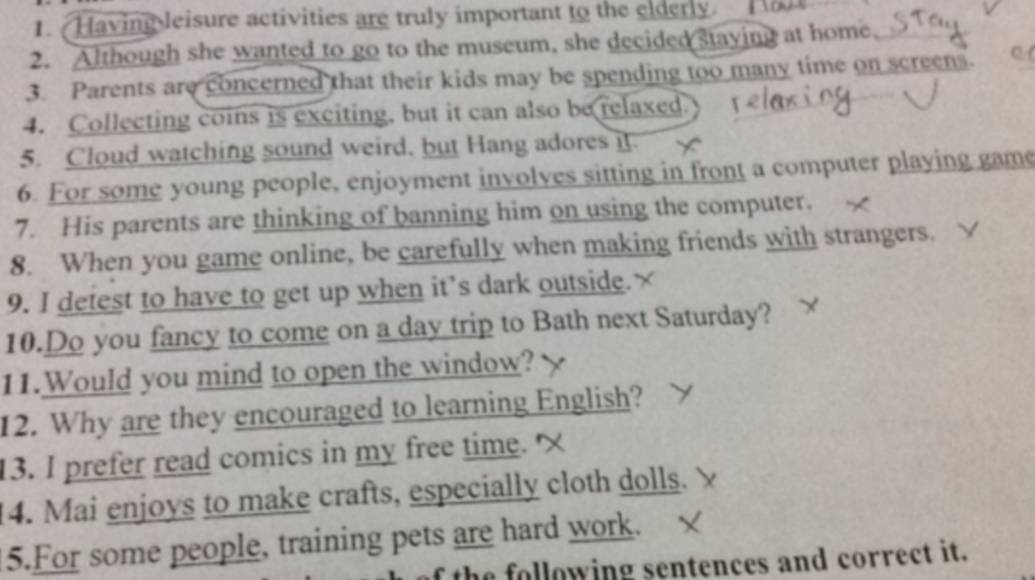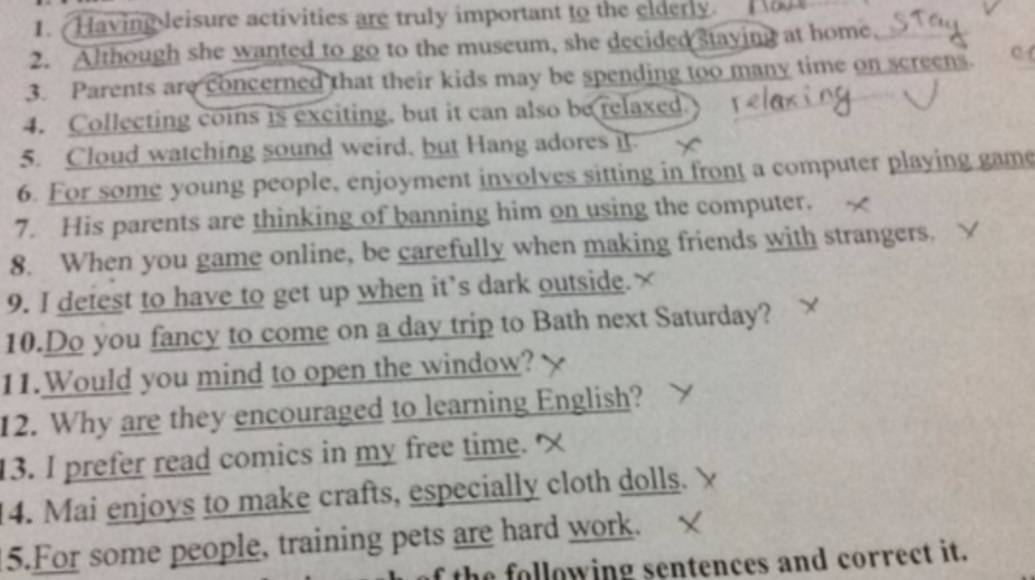Read the passage. Match the heading with the paragraph. One heading is not used. Headings Paragraphs
1. Economy
2. Education
3. Customs and habits
4. Costumes
5. Culture
A. Ancestor worship is a religious rite of the Tay. The altars for the ancestors are placed in a central location in the house. The altar room is such a sacred place that guests is not allowed to sit on the bed in front of the altar. After giving birth, women are also not allowed to sit on the bed in front of the altar. Tay...
Đọc tiếp
Read the passage. Match the heading with the paragraph. One heading is not used. Headings Paragraphs
1. Economy
2. Education
3. Customs and habits
4. Costumes
5. Culture
A. Ancestor worship is a religious rite of the Tay. The altars for the ancestors are placed in a central location in the house. The altar room is such a sacred place that guests is not allowed to sit on the bed in front of the altar. After giving birth, women are also not allowed to sit on the bed in front of the altar. Tay villages are always built at the foot of a mountain and are often named after a mountain, field, or river. Each village contains about 15-20 households.
B. The Tay language belongs to Tay-Thai Group. There is a rich traditional folklore with all kinds of poems, songs, dances, and music. Tay songs include the Hat Luon (a kind of duet between lovers), wedding songs, and lullabies.
C. Tay women wear knee-length dresses, which are split at the right side with five buttons along the armpit, and narrow sleeves.
D. The Tay has developed agricultural practices quite well and are able to cultivate all kinds of plants including rice, maize, and sweet potato. Answer the questions below.
1. What is the religious rite of the Tay?
2. What kind of place is the altar room in the Tays house?
3. Who are not allowed to sit in front of the altar?
4. What word in paragraph B means songs for babies?
5. What word in paragraph D means grow?



